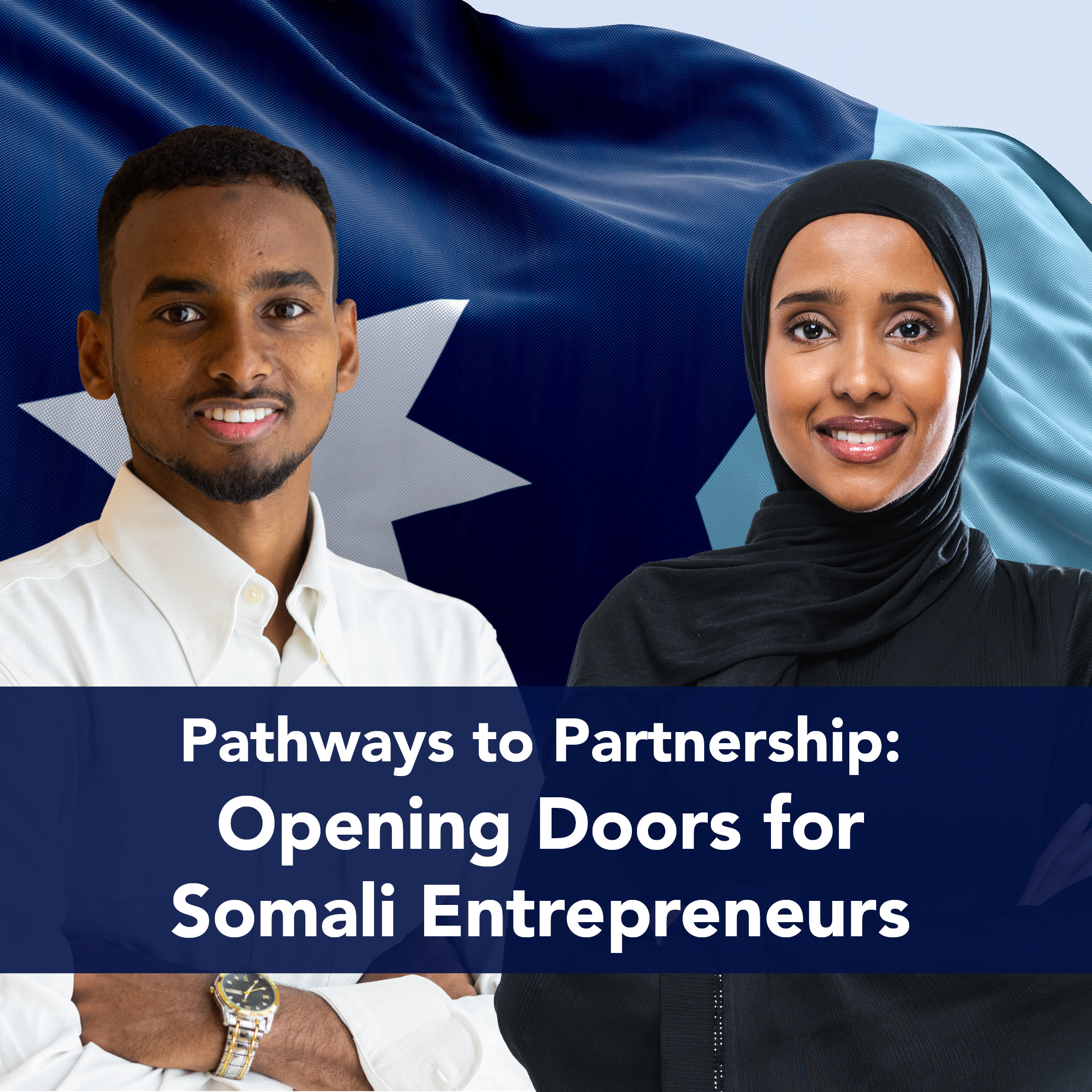Somali News
ATMIS Donates Medicines and Food items to Dhobley General hospital
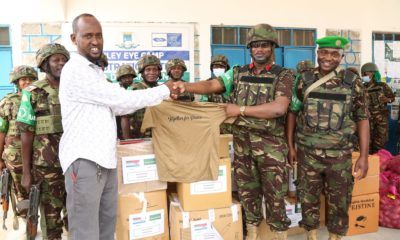
Dhobley, 9th July 2022—Troops from the Kenya Defence Forces (KDF) serving under African Union Transition Mission in Somalia (ATMIS), have donated an assortment of medical supplies and food items to Dhobley General Hospital.
ATMIS Deputy Sector Two Commander, Colonel Joel Maiyo, said the food donation was to help with feeding of patients, especially children admitted with severe malnutrition as a result of the ongoing drought. The medical supplies are to help the hospital in meeting the medical needs of patients.
“We came to Dhobley General Hospital to donate medicine and food to support all patients, especially children, women, and the elderly who are admitted to this hospital. Our mandate as ATMIS is to support the Somali people, and this includes supporting the Somali Security Forces in protecting and taking care of welfare of the population. This donation forms part of our civil-military cooperation (CIMIC) activities,” said Col. Maiyo.
Receiving the items, the Director of Dhobley Hospital, Mohamed Yusuf Hassan, called for more support from ATMIS and Somalia’s international partners to help alleviate the suffering of the vulnerable members of the community.
“We appreciate this timely donation, and it must be said that ATMIS has always supported us in times of need. This donation will help alleviate some of the challenges we face. On many occasions, ATMIS has helped us deal with serious medical cases that cannot be treated in our hospitals due to lack of specialist care. We have taken patients to the ATMIS hospital where they have been treated, and we appreciate that very much,” said the hospital director.
Beyond combat activities to degrade Al-Shabaab, ATMIS forces in Somalia undertake Quick Impact Projects, which are small-scale projects that address the basic needs of local populations. Some of the activities include drilling of boreholes, refurbishing hospitals, building schools and markets to help improve the lives and welfare of the local communities living under its areas of responsibility.
ENDS.
SOURCE: ATMIS PUBLIC INFORMATION
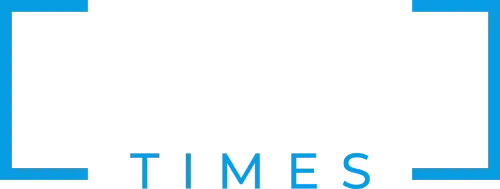
Somali News
Chairperson of African Union Commission concludes visit to Somalia with urgent appeal for international support
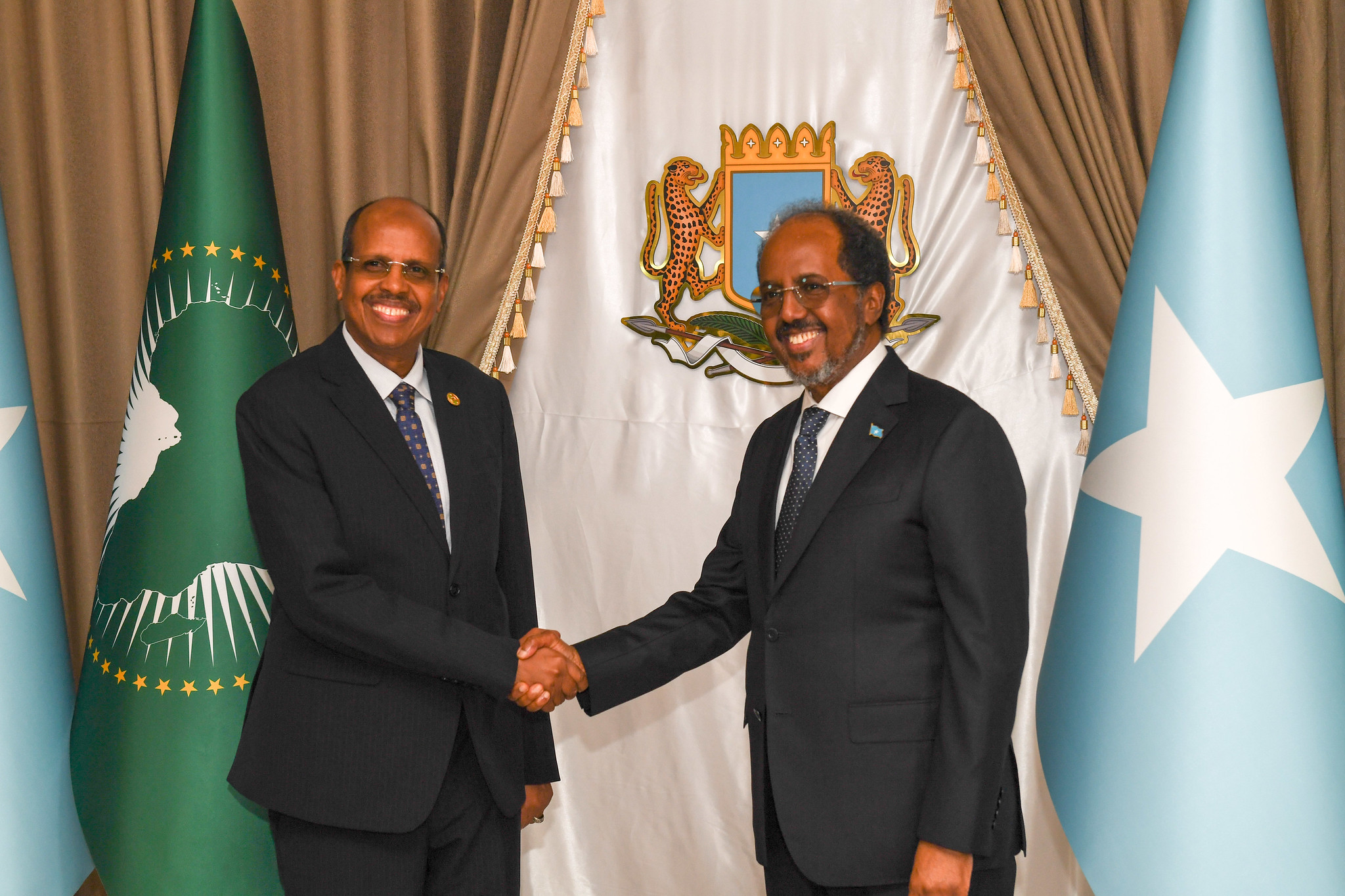
Mogadishu, 25 March 2025 – The Chairperson of the African Union Commission (AUC), H.E. Mahmoud Ali Youssouf, has concluded a historic two-day visit to Somalia, his first official visit to the country since taking office.

During his visit, the Chairperson made an urgent appeal to the international community, highlighting critical funding shortfalls for the African Union Support and Stabilisation Mission in Somalia (AUSSOM) and called for renewed commitment to the country’s peace and stabilization efforts.
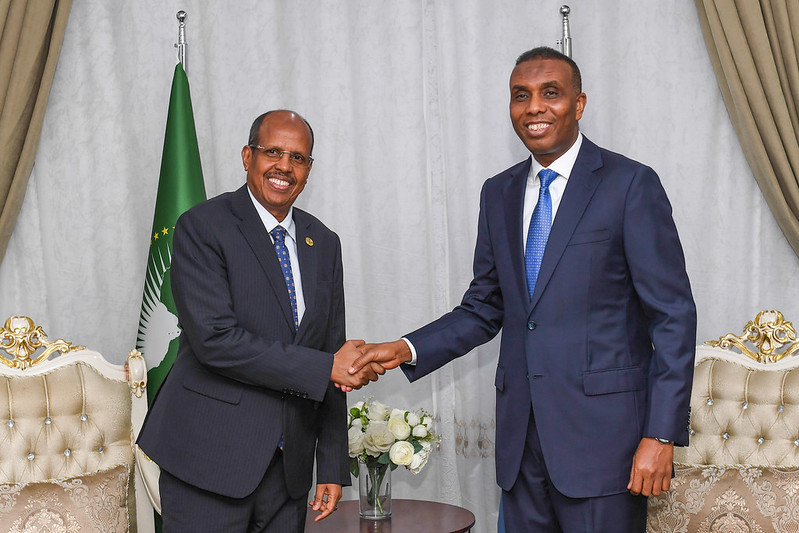
Photos credit: AUSSOM Public Information
Somali News
Stakeholders finalize AUSSOM Force Structure and Deployment Plans in Mogadishu
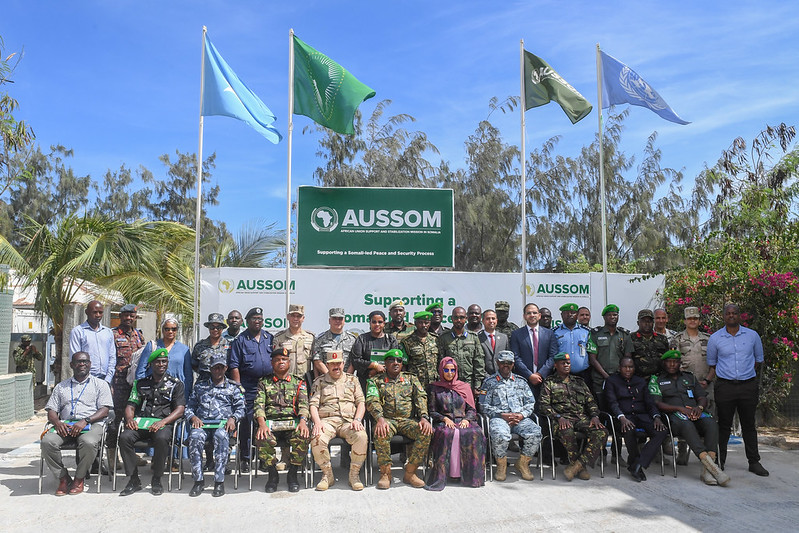
Mogadishu, 26 March 2025 – The Peace Support Operations Division (PSOD) of the African Union Commission (AUC), Federal Government of Somalia (FGS) and representatives from AUSSOM Troop and Police Contributing Countries have concluded a four-day technical working session to finalize the capabilities, force composition, and deployment plans of the African Union Support and Stabilization Mission in Somalia (AUSSOM).
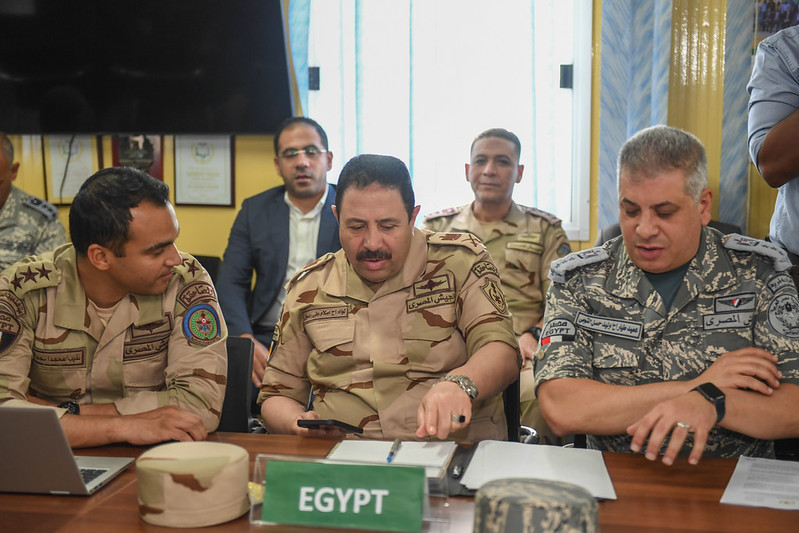
The workshop, an important step toward the closure and liquidation of the African Union Transition Mission in Somalia (ATMIS) and the startup for AUSSOM, which becomes fully operational by 1 July 2025, was a follow-on session from the Somalia Operations Coordination Committee (SOCC) meeting which took place in February 2025 in Addis Ababa, Ethiopia, with Chiefs of Defense Forces, Inspectors General of Police, and Ministers of Defence and Security from both Troop and Police Contributing Countries (T/PCCs) to define the operational roadmap for AUSSOM.
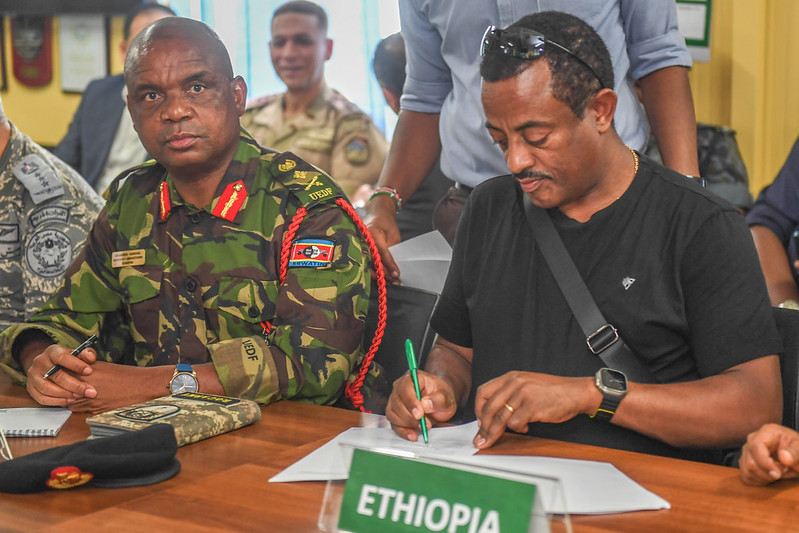
Health
Attention, Minnesota! Measles Outbreak Alert

Minnesota –
The Minnesota Department of Health (MDH) confirmed measles outbreak. This highly contagious virus can be serious, especially for young children and those with weakened immune systems. Here’s what you need to know:
![]() What is Measles? A viral infection that causes a high fever, cough, runny nose, and a characteristic rash. It can lead to complications like pneumonia and encephalitis.
What is Measles? A viral infection that causes a high fever, cough, runny nose, and a characteristic rash. It can lead to complications like pneumonia and encephalitis.
![]() Symptoms to Watch For: Fever, cough, runny nose, and a red, blotchy rash that typically starts on the face and spreads.
Symptoms to Watch For: Fever, cough, runny nose, and a red, blotchy rash that typically starts on the face and spreads.
![]() Prevention: The best defense is vaccination. Ensure you and your family are up-to-date with the MMR (measles, mumps, and rubella) vaccine. It’s safe and highly effective.
Prevention: The best defense is vaccination. Ensure you and your family are up-to-date with the MMR (measles, mumps, and rubella) vaccine. It’s safe and highly effective.
![]() If You Suspect Infection: Contact your healthcare provider immediately and avoid public places to prevent spreading the virus.
If You Suspect Infection: Contact your healthcare provider immediately and avoid public places to prevent spreading the virus.
Your vigilance can help protect our community. For more information and updates, check with local health authorities and healthcare providers.
Stay safe and informed! https://www.health.state.mn.us/diseases/measles/index.html
-
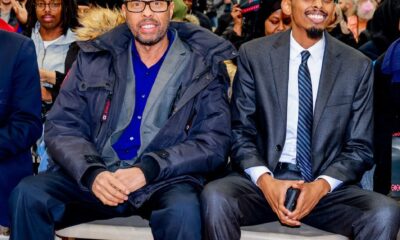
 Local News7 months ago
Local News7 months agoFrom First to Forefront: Omar Fateh’s DFL Endorsement for Minneapolis Mayor Marks a 25-Year Somali American Political Journey
-

 Community7 months ago
Community7 months agoKhadka Caawinta Qaxootiga iyo Soo Galootiga: Wac maanta si aad u hesho macluumaad iyo ilo xogo
-

 Local News11 months ago
Local News11 months agoCouncilmember Osman’s Statement on Violence Interrupter Services in Cedar Riverside and Elliot Park
-

 Local News9 months ago
Local News9 months agoLake Street Lift Launches “Lake of 10,000 Lands” Campaign
-
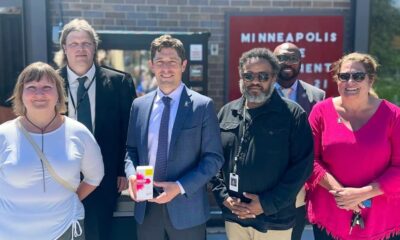
 Health9 months ago
Health9 months agoCity of Minneapolis Launches First NARCAN Vending Machine on the Northside
-

 Local News9 months ago
Local News9 months agoMinneapolis Vows to Advance Police Reforms Despite DOJ Move to Dismiss Consent Decree
-

 Local News9 months ago
Local News9 months agoMore than 6,000 drivers cited for prioritizing phones over safety during distracted driving enforcement campaign
-

 Community11 months ago
Community11 months agoTibyan Center Hosts Successful Iftar Dinner at New Facility in Saint Anthony

